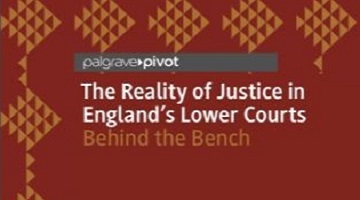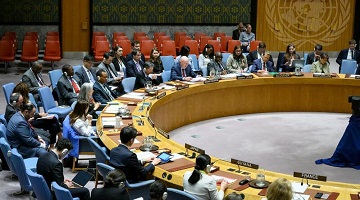About this course
LJMU's Criminal Justice MA is a stand-alone qualification designed to enhance your career prospects in criminal justice agencies, the probation service and the police.
- Learn from research-active staff and local criminal justice professionals
- Engage with the theory, policy, and practice of the institutions and agencies of criminal justice
- Choose from an extensive range of module options, including an MA International Criminal Justice pathway
- Generous funding scholarships available for home and overseas students
This Masters in Criminal Justice offers the opportunity for students, practitioners, and criminal justice professionals to critically engage with a broad range of issues that impact on the effectiveness and integrity of the workings of the criminal justice system.
Through exploring a series of theoretical and policy-orientated debates relevant to the delivery of contemporary crime control and management, and assessing their cultural, social and symbolic consequences, the course helps you to develop a comprehensive and critically aware understanding of the manufacture and delivery of criminal justice policy.
During the programme you will evaluate discriminatory practice in the criminal justice process and the causes of miscarriages of justice. Your evaluations will be informed by a critical understanding of sources of data and research methodologies and, through option modules, you will develop an in-depth knowledge of particular issues relating to criminal justice in England, Wales and elsewhere.
Course modules
Discover the building blocks of your programme
Further guidance on modules
Modules are designated core or optional in accordance with professional body requirements, as applicable, and LJMU’s Academic Framework Regulations. Whilst you are required to study core modules, optional modules provide you with an element of choice. Their availability may vary and will be subject to meeting minimum student numbers.
Where changes to modules are necessary these will be communicated as appropriate.
Core modules
Optional Modules
Your Learning Experience
An insight into teaching on your course
Study hours
Typically, students attend teaching on two or three days per week. Days of attendance vary according to timetabling requirements.
Teaching methods
Teaching is delivered through a series of lectures, workshops and seminars by expert staff and local criminal justice professionals. The teaching team will ensure that you will critically engage with the theory, policy and practice of the institutions and agencies of criminal justice. The focus on research training will equip you with the key transferable skills required to undertake original, empirical research.
Applied learning
Through exploring a series of theoretical and policy-orientated debates relevant to the delivery of contemporary crime control and management, and assessing their cultural, social and symbolic consequences, the course helps you to develop a comprehensive and critically aware understanding of the manufacture and delivery of criminal justice policy.
How learning is monitored on your programme
To cater for the wide-ranging content of our courses and the varied learning preferences of our students, we offer a range of assessment methods on each programme.
Assessment methods on this course include essays, projects, portfolios, dissertation and presentations.
Where you will study
The School is based in the Redmonds Building, in the heart of the bustling Mount Pleasant Campus and Liverpool's growing Knowledge Quarter. Redmonds is shared by two Schools within the Faculty of Arts, Professional and Social Studies - Liverpool Screen School and the School of Law - and Liverpool Business School, making for a rich blend of student learning experiences. The building is home to high quality lecture theatres and seminar rooms, a mock courtroom, social spaces, and a café. It is only a short walk from LJMU's Aldham Robarts Library, which contains all the resources you will require for your studies.
Course tutors

Dr Helena Gosling
Programme Leader
Since completing my PhD, my main research interests are situated in the design, delivery and commissioning of innovation and alternative practice within and beyond the criminal justice system.
Since completing my PhD, my main research interests are situated in the design, delivery and commissioning of innovation and alternative practice within and beyond the criminal justice system.
Helena is a Senior Lecturer in Criminal Justice and programme lead for the MA Criminal Justice and MA International Criminal Justice at Liverpool John Moores University. To date, Helena has worked at LJMU for more than 10 years occupying a variety of roles and responsibilities across both Criminology and Criminal Justice programmes. Prior to becoming an academic, she worked in the drug rehabilitation sector across community, residential and custodial settings.
-
 Lecturer
Lecturer
Career paths
Further your career prospects
LJMU has an excellent employability record with 96% (HESA 2018) of our postgraduates in work or further study six months after graduation. Our applied learning techniques and strong industry connections ensure our students are fully prepared for the workplace on graduation and understand how to apply their knowledge in a real world context.
The Masters in Criminal Justice offers vocationally relevant knowledge and skills. It will be particularly relevant if you are currently working with or would like a career involving criminal justice agencies, the probation service, social science departments, the police or community-based correction/treatment agencies.
Tuition fees and funding
- Part-time per credit:
- £53.05
The University reserves the right to increase tuition fees in accordance with any changes to the maximum allowable fees set by the UK Parliament. In the event of such a change, any fee increase will be subject to a maximum cap of 10% of the total course cost as originally stated at the time of your offer.
Fees
The fees quoted at the top of this page cover registration, tuition, supervision, assessment and examinations as well as:
- library membership with access to printed, multimedia and digital resources
- access to programme-appropriate software
- library and student IT support
- free on-campus wifi via eduroam
Additional costs
Although not all of the following are compulsory/relevant, you should keep in mind the costs of:
- accommodation and living expenditure
- books (should you wish to have your own copies)
- printing, photocopying and stationery
- PC/laptop (should you prefer to purchase your own for independent study and online learning activities)
- mobile phone/tablet (to access online services)
- field trips (travel and activity costs)
- placements (travel expenses and living costs)
- student visas (international students only)
- study abroad opportunities (travel costs, accommodation, visas and immunisations)
- academic conferences (travel costs)
- professional-body membership
- graduation (gown hire etc)
Funding
There are many ways to fund postgraduate study for home and international students. From loans to International Scholarships and subject-specific funding, you’ll find all of the information you need on our specialist postgraduate funding pages.
Please be aware that the UK’s departure from the EU may affect your tuition fees. Learn more about your fee status and which tuition fees are relevant to you.
Entry requirements
You will need:
Qualification requirements
How to apply
Securing your place at LJMU
To apply for this programme, you are required to complete an LJMU online application form. You will need to provide details of previous qualifications and a personal statement outlining why you wish to study this programme.
Your university life
From accommodation and academic support to clubs and societies. Find out what LJMU has to offer.
Related Links
Talk to our students
Connect with a current LJMU student for advice and guidance on university life, courses and more.
See what our students are saying
At LJMU we want you to know you’re making the right choice by studying with us. You can see what our students are saying about their experience with us through their reviews on the following websites:
Related Links
News and views
Browse through the latest news and stories from the university
The University reserves the right to withdraw or make alterations to a course and facilities if necessary; this may be because such changes are deemed to be beneficial to students, are minor in nature and unlikely to impact negatively upon students or become necessary due to circumstances beyond the control of the University. Where this does happen, the University operates a policy of consultation, advice and support to all enrolled students affected by the proposed change to their course or module.




























